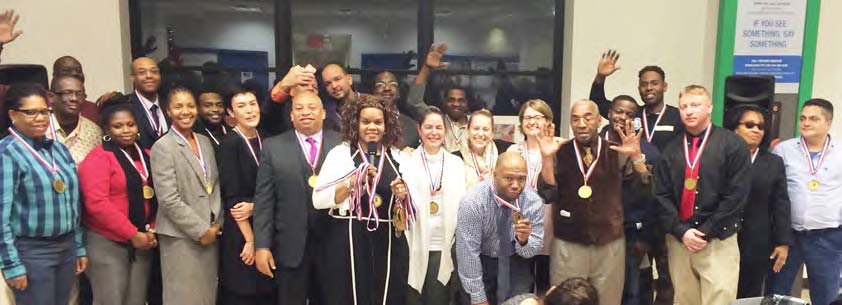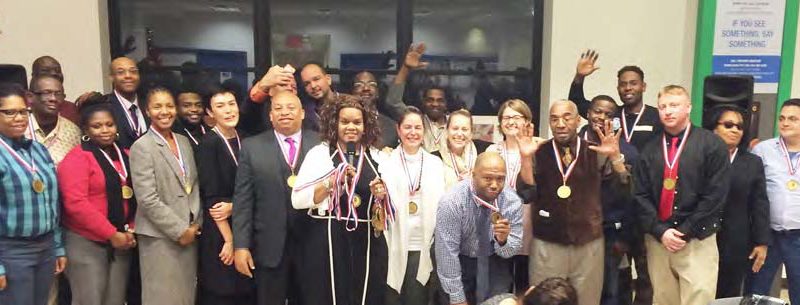Family Reentry Program Celebrates Two Years of Success

On December 2, the NYCHA Family Reentry Pilot Program celebrated two years of successful reentry and family reunification, at an event co-hosted with the Vera Institute of Justice at the Fortune Society, in Long Island City, Queens. The program has admitted 54 individuals in its first two years, enabling them to live in their families’ NYCHA apartments with temporary permission while in the program, and to be added to the lease upon their graduation from the program. The first participant, who enrolled in November 2013, has just completed the two-year program and is in the process of becoming an authorized family member on his mother’s NYCHA lease.
Nora Reissig, director of NYCHA’s Department of Family Services, and Margaret di Zerega, director of Vera’s Family Justice Program, both spoke at the celebration about the genesis of the program that offers individuals recently released from prison equal access to affordable housing, family support, and opportunities such as employment and higher education.
Julio Medina, Executive Director of Exodus Transitional Community, spoke about the importance of partnerships, especially within families. Closing remarks were delivered by Yolanda Johnson- Peterkin, NYCHA Reentry Pilot Coordinator, who ended the evening’s activities with words of encouragement and a medal displaying the words: “Effort, Respect, Courage, Honor, Friendship, Passion, Victory & Fair Play.” The medal was presented to all the participants, partners, and staff in attendance.
“We also want to recognize the Family Reentry Pilot Program staff and our partner agencies for their commitment and ongoing dedication to ensure that individuals who have paid their debt to society and are being released from incarceration—and who have demonstrated a determination to turn their lives around—are given access to the stable housing and family support needed to become productive and law-abiding members of society,” Ms. Reissig said.
“We’ve found that the family reunification model benefits both the program participant and the family,” she noted. “Program participants provide support, safety, and security to their family members, and the family members help encourage participants to reach their goals, help keep them on track when needed, and help motivate them to make positive changes.”







